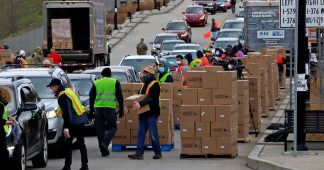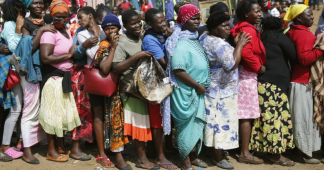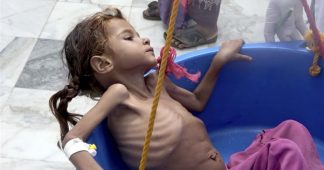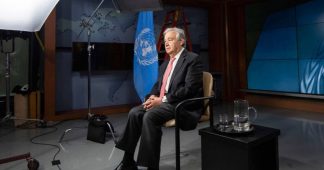5 Dec, 2020
The head of the World Food Programme has made a dire forecast about the months to come, slating “catastrophic” humanitarian crises for 2021, in what could be the worst year seen in the better part of a century.
WFP chief David Beasley sounded the alarm at a United Nations General Assembly meeting on Friday, convened to discuss the coronavirus pandemic and worldwide efforts to blunt its impact. He warned that some 270 million people are now “marching toward starvation” and that, in some countries, famine is “around the horizon.”
“2021 is literally going to be catastrophic, based on what we’re seeing at this stage in the game,” Beasley said, adding that “because we’ve spent $19 trillion, that money may not, and will not most likely be available for 2021,” even as economic contractions have already begun.
We’re now looking literally at 2021 being the worst humanitarian crisis year since the beginning of the United Nations, and we’re going to have to step up.
While Beasley said the pandemic and government lockdown policies are driving the disturbing trends – stating the “cure could be worse than the disease because of the economic ripple effect” – he noted that “man-made conflict” also had a role to play, naming ongoing wars in Syria, Yemen, and South Sudan.
“We’ve got to end some of these wars. We’ve got to bring these wars to an end, so we can achieve the sustainable development goals that we so desire,” he said, dubbing the conflicts, health crisis and looming famine as “icebergs in front of the Titanic.”
If we’re strategic and put the funds to these particular icebergs before us, I believe that we can get through 2021, while we work with the vaccines and rebuild the economies.
In August, the WFP head said the number of people facing malnutrition could spike by 80 percent by the end of the year, warning of a “famine of biblical proportions” as millions risk starvation. UNICEF, meanwhile, predicted in May that, in 118 low and middle-income nations, 1.2 million children under the age of five could die in the following six months, pinning the surge on declining access to medical care “due to lockdowns, curfews and transport disruptions.”
Published at www.rt.com











